This is Part 12 of our 18-part first-time home buyer series. You may refer to the full table below:
So many readers write in because they're unsure what to do next, and don't know who to trust.
If this sounds familiar, we offer structured 1-to-1 consultations where we walk through your finances, goals, and market options objectively.
No obligation. Just clarity.
Learn more here.
First Time Home Buyer Guide
Financing
- Approval-in-Principle: Why It’s Your First Step for a Home Loan/Mortgage
- How Much Can You Borrow For A Home Loan / Mortgage?
- How Much Income Do You Need To Get A Home Loan / Mortgage?
- How To Read Your Credit Report For Your Home Loan / Mortgage
- Understanding SIBOR, Board Rate, And Fixed Deposit Home Loans
- How You Can Compare Home Loans And Get The Best Deal
Choosing The Right Condo
- Executive Condo Versus Private Condo
- Freehold Versus Leasehold Condos
- New Versus Resale Condos
- Large Versus Small Condo Developments
Choosing The Best Condo Unit In A Development
- How To Pick The Best Stack In A Development
- Key Questions To Ask About Condo Facilities
- Key Factors To Note About A Condo’s Location
- How To Read And Compare Floor Plans
- What To Look For In Condo Shoebox Units
- When Should You Consider A Dual-Key Unit?
- Key Questions To Ask At A Showflat
- Condo Purchase Timeline
From the moment you step into a showflat, you’ll be bombarded with impressive facts about the condo facilities on offer. It’s something that every developer likes to use to promote the uniqueness of their project. Whether there are more pools than any other development in the neighbourhood, or the playground being designed by an award-winning architect, or perhaps even the clubhouse is a preserved historical building, etc.
The truth is while you might see a list of “46 condo facilities”, most of the time it is a lot of marketing speak. For example, a yoga deck is very often just – a wooden deck. You can say the same for a wellness pond – it really is just a run of the mill water feature.
While I wouldn’t like to say that there is a “bad” facility, there is the possibility that the facility isn’t a good fit for your lifestyle; and you do need to compare between facilities, if you’re looking at more than one development.
As such, here are some questions to ask about the condo facilities, so you can make better comparisons:
- What are the estimated maintenance costs?
- Who can or can’t use certain facilities?
- What level of usage can you expect for the facility?
- How frequently will you use the facility?
- How accessible is the facility to your specific unit?
- What sort of traffic and noise does the facility generate?
- What’s gone into maintenance or enhancement over the years?
1. What are the estimated maintenance costs?
This doesn’t refer to any specific facility, but the overall maintenance costs you can expect to pay. For most mass market condos, this is about $200 to $450 per month (collected on a quarterly basis). Of course, this is dependent on the share value of your unit (which is dependent on the size).
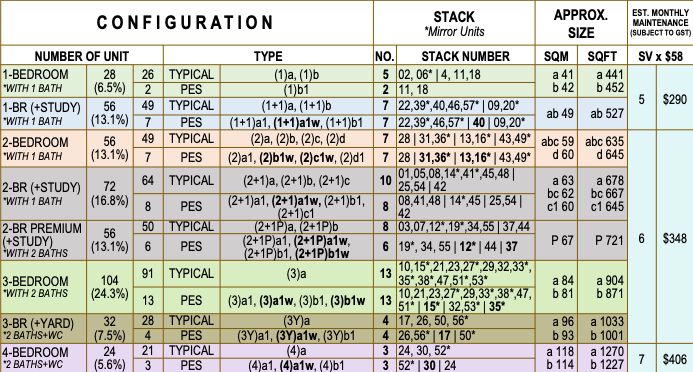
The range and nature of facilities plays a big role in this. For example, condos that have a concierge service – typical of luxury properties – can result in four-digit maintenance fees every month.
When working out the affordability of a unit, remember to add the cost of maintenance to your other obligations, like the home loan repayment (and before you ask, no, you can’t use your CPF to pay maintenance bills).
As an aside, note that bigger developments have an advantage here. They tend to have more condo facilities, but also cost less in terms of maintenance. In a mega project like Parc Clematis, for instance, there are over 1,400 units to split the costs, thus reducing the overall bill for each owner.
2. Who can or can’t use certain facilities?
This can be a major point of contention with the condo management.
How do you feel about a condo that won’t let your domestic helpers use the pool or the gym? This is a longstanding practice in many, but not all, condos. If this concept doesn’t agree with you, you might want to look for another option.
You should also consider the rules regarding personal trainers, swim coaches, or any other third party that you’d like to invite into the condo. Some developments have rules that are much tighter; to the point where you’ll need to sign in your trainer / swim coach each time they arrive. Others will just let them walk-in, and occasionally make random checks.
Finally, do take note of the usage of clubhouse facilities and BBQ pits. There are limits on the number of guests you can have (e.g. you may not be able to bring in 20 people and give them all pool access during your BBQ).
Decide if all of the rules agree with you.
3. What level of usage can you expect for the facility?
For resale properties, observe the level of usage for the facilities; ideally at peak periods such as weekends.
There’s a tricky balance involved here. For example, small developments have fewer residents. But the facilities also tend to be smaller, so it’s still possible for the gym to be occupied all the time, or the BBQ pits to be overly crowded or hard to book.
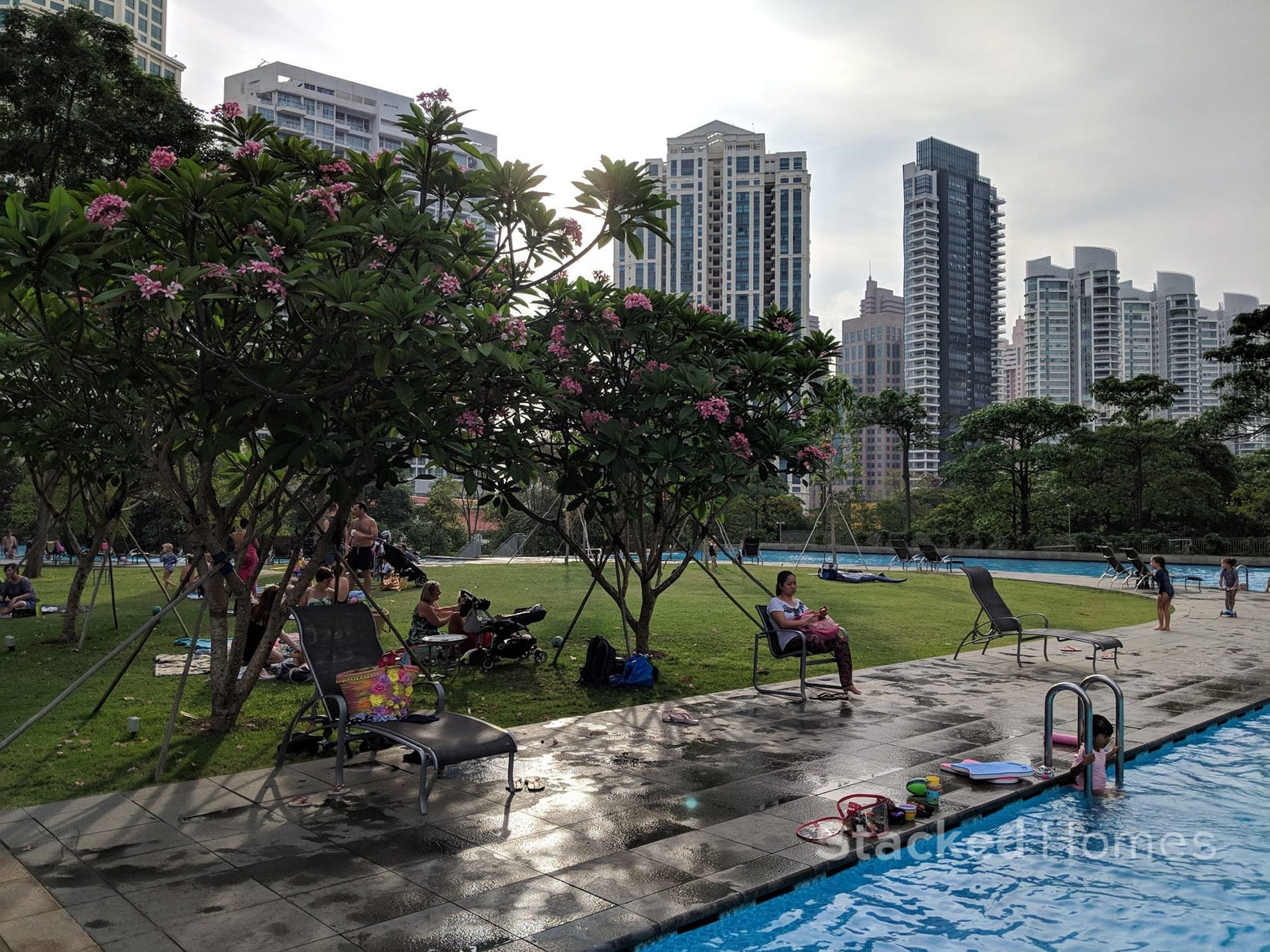
The only developments that are mostly safe from this are mega-projects, which have massive land plots for facilities, or condos that use an 80/20 allocation (i.e. 80 per cent of the plot space is given over for shared facilities).
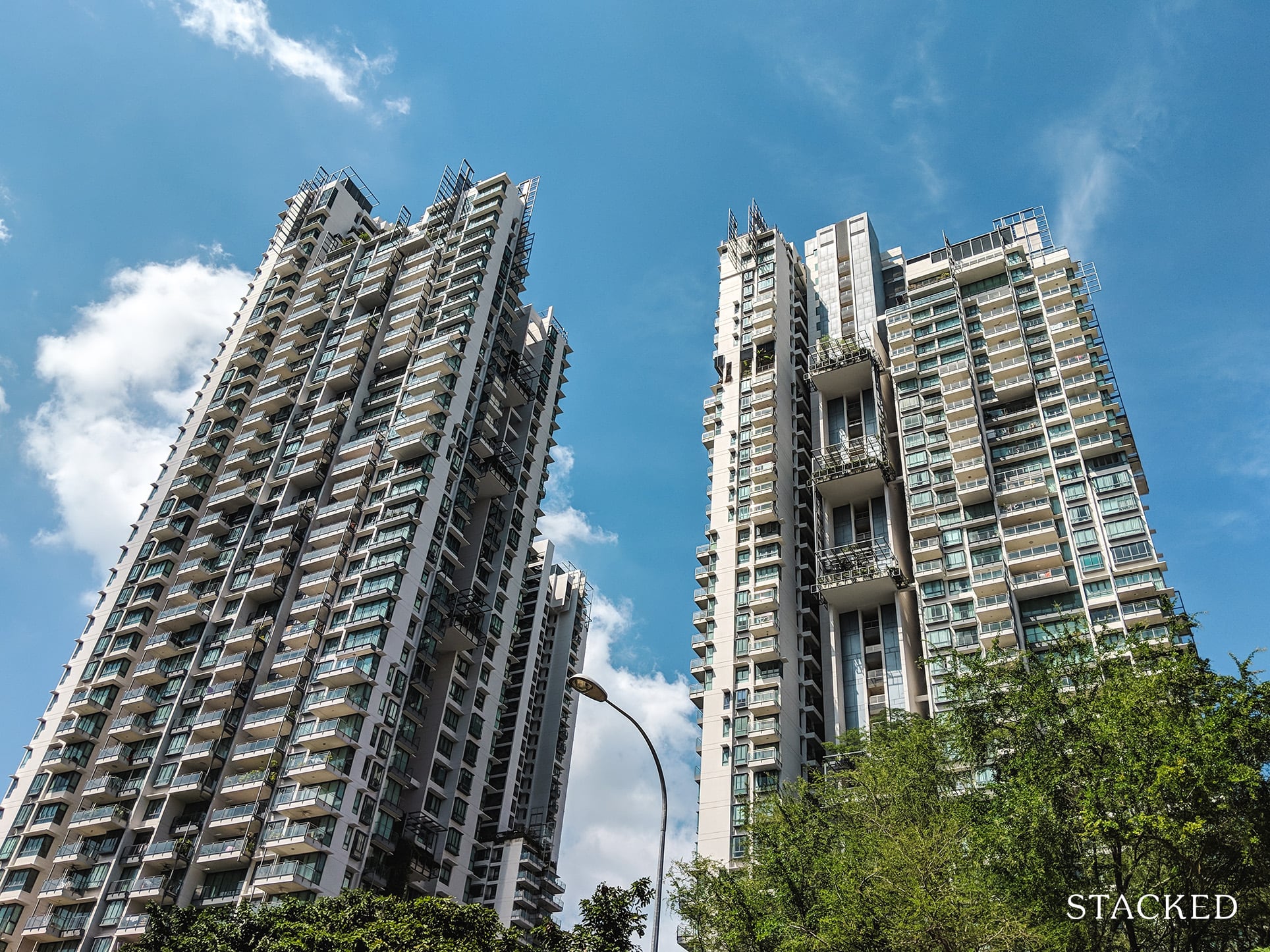
Condo ReviewsRivergate Condo Review: Best riverfront condo in River Valley?
by Stanley Goh4. How frequently will you use the facility?
Whether or not you’re going to use the facility, you’re paying for it. So you need to decide if the bowling alley, rock-climbing wall, or concierge service is really something that matters to your family. We doubt that your 75-year old in-law living with you, for instance, will find much use for the novelty rock-climbing wall.
We know of some condo residents who have used their pool or gym once in every 10 years. Sometimes, a smaller development with fewer facilities can save you thousands of dollars every quarter; with almost no impact on your lifestyle.
5. How accessible is the facility to your specific unit?
In bigger condo developments, your favourite facility might be quite a walk from your unit. It might be better to opt for facilities that are right out the door; such as having BBQ pits next door instead of three condo blocks away (it makes it easier to host parties).
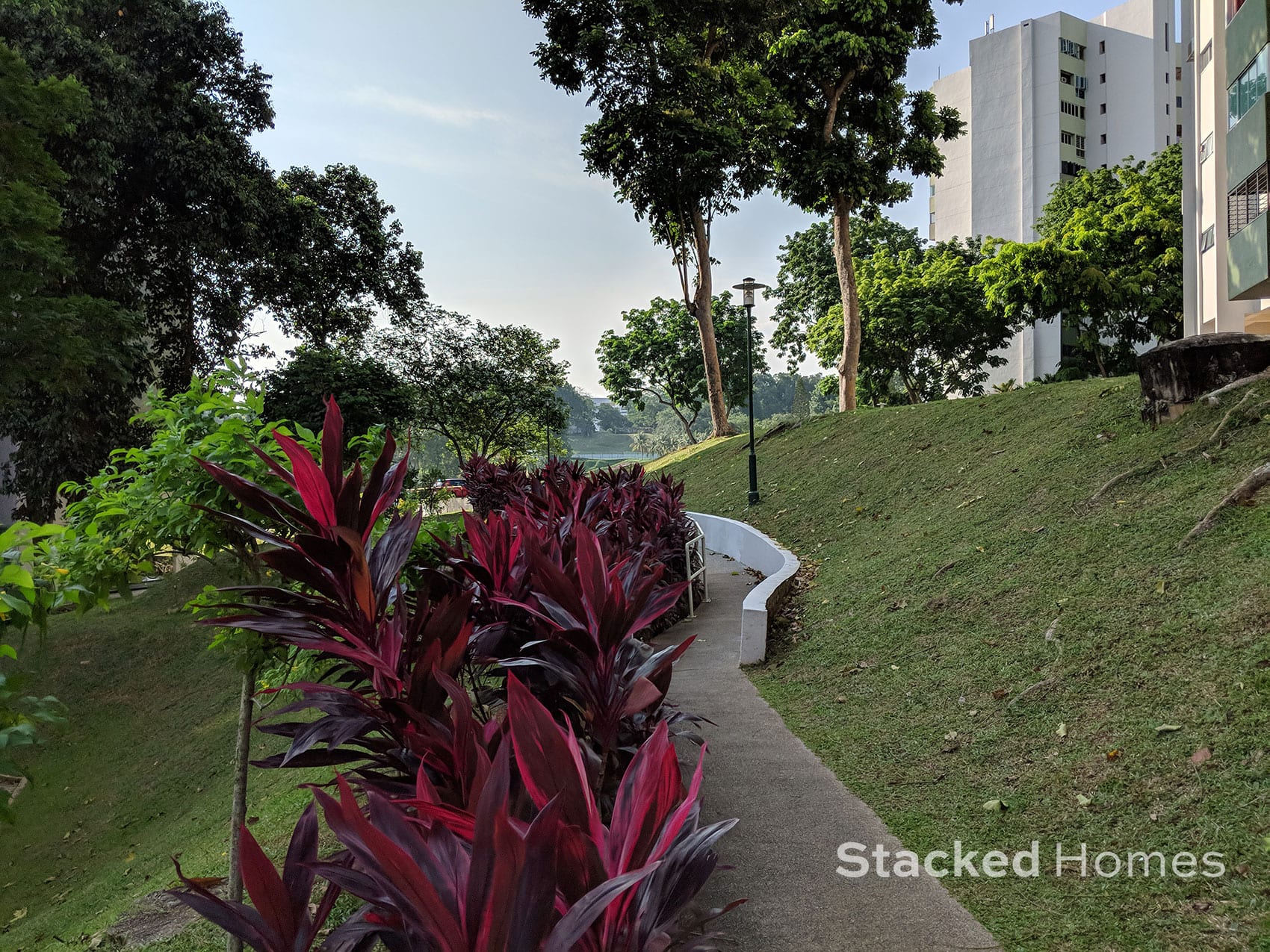
This also applies on a vertical basis. For example, if you love sky gardens, you may want to check out which floors are the closest. This can help you decide which units to pick, to maximise the convenience of getting there.
6. What sort of traffic and noise does the facility generate?
The playground, BBQ pits, or pool may look great; but how noisy is it likely to get? You may not appreciate the sounds of a 10-person party, or squealing children, coming into your patio every weekend.
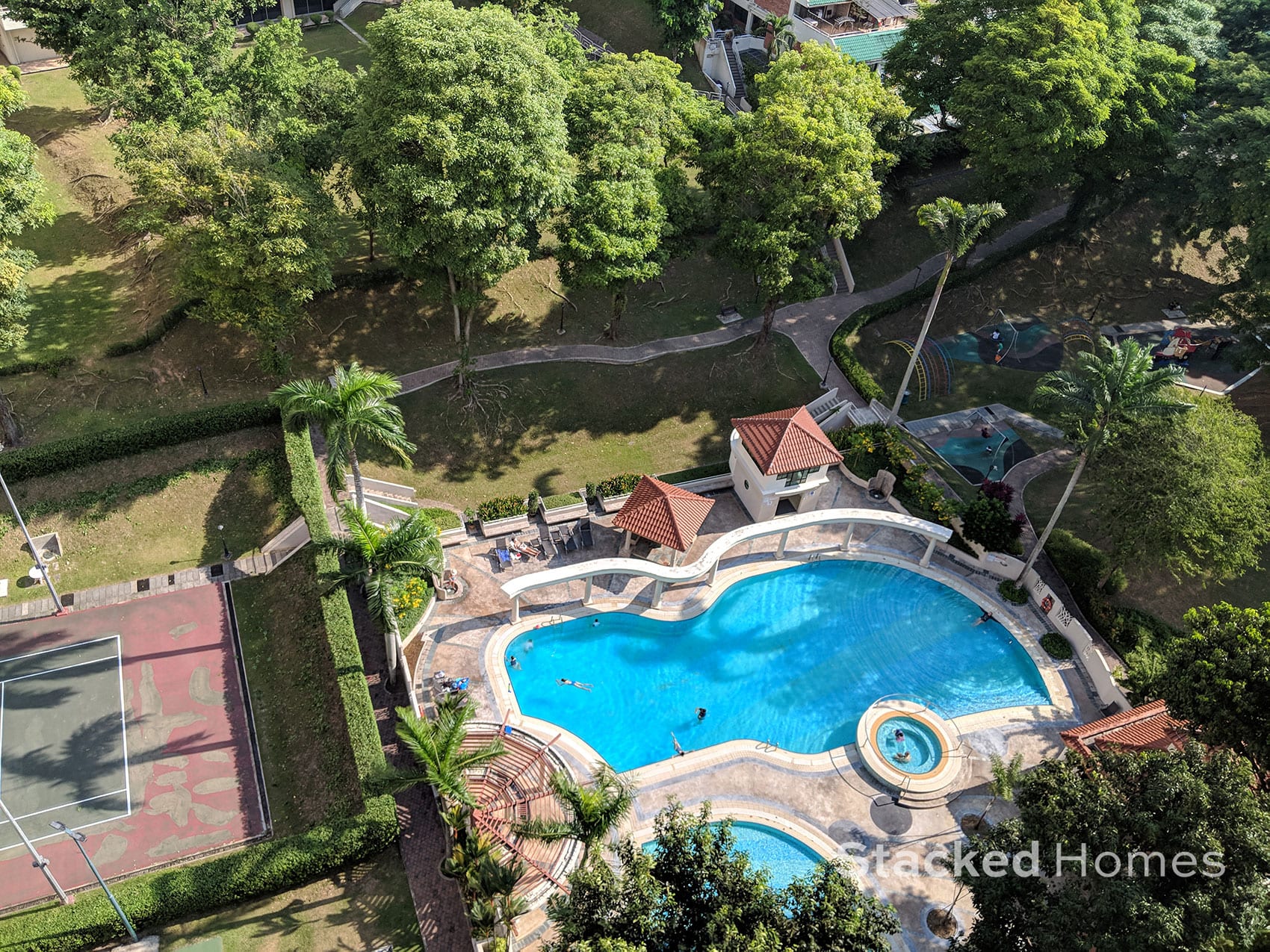
Don’t forget this applies even on higher storeys. You may be picking a high floor unit specifically because it’s quiet and more private; and if so, the last thing you want is to hear is the pok-pok-pok of the rooftop tennis court as it’s in use.
(The lift also slows down, if people are always heading up to rooftop facilities).
There is a bit of a trade-off here. The closer and more accessible you want a facility to be, the more you’re exposed to its noise, and the crowds moving to it.
7. What’s gone into maintenance or enhancement over the years?
For older resale units, take note of the state of the facility. Keep an eye out for things such as:
- Facilities that are closed or under maintenance (how long have they been shut down, and when are they expected to return to service?)
- Any broken or rusted equipment in gyms and playgrounds, or missing bits (such as free weights that have been stolen off the racks)
- Overgrown or poorly maintained theme gardens and lawns (some of these are haven to vermin, or worse, mosquitoes)
- Cleanliness of shower facilities, BBQ pits, and swimming pools
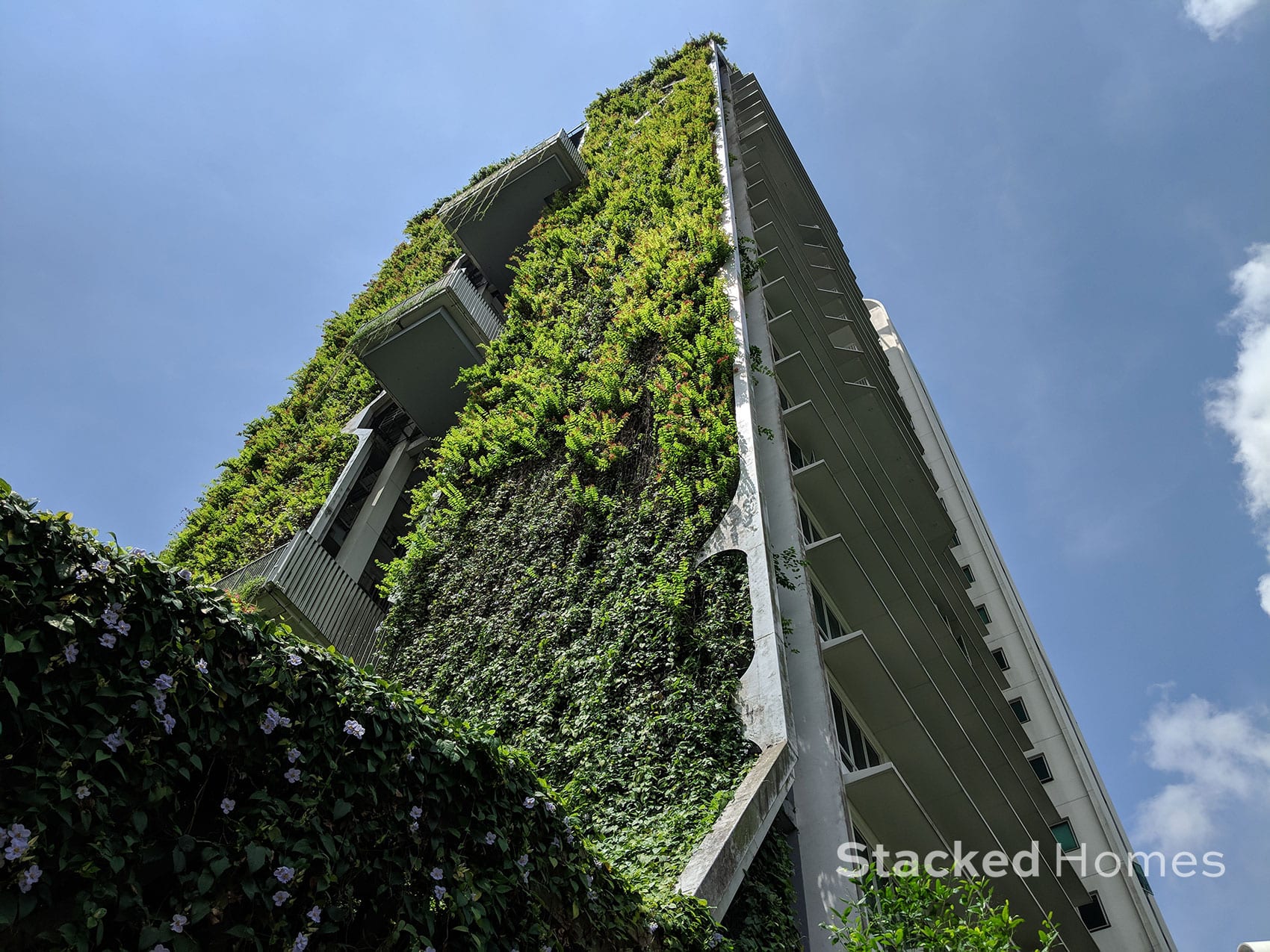
As a great example to highlight, the Tree House Condo management team reached out to us after our review of the development to state that the minor issues highlighted would be worked on in due course. That shows a proactive management and one that you can feel assured would keep the place in a good condition.
Even if you don’t use the facilities, bear in mind that the resale value of your unit is affected by poor management. If the facilities are already going to seed, it’s likely to look even worse over the coming decade.
Good condo management doesn’t just maintain the level of the facilities; they may even have enhanced them by adding more features, or further upgrading landscaped areas. Ask the seller’s property agent to show you any of these improvements.
For an in-depth look at various condo facilities, follow us on Stacked Homes.
We provide extensive reviews of such facilities, on a project-by-project basis. If you’re uncertain about a given development, you can also message us directly on Facebook for help.
For more details on buying your first home, check out the rest of our Ultimate guide on Stacked Homes.
This is Part 12 of our Ultimate Guide to buying your first home. If you haven’t read Part 11, you can do so at the link!
Next up: Part 13 – Key factors to note about a condo’s location
At Stacked, we like to look beyond the headlines and surface-level numbers, and focus on how things play out in the real world.
If you’d like to discuss how this applies to your own circumstances, you can reach out for a one-to-one consultation here.
And if you simply have a question or want to share a thought, feel free to write to us at stories@stackedhomes.com — we read every message.
Ryan J. Ong
A seasoned content strategist with over 17 years in the real estate and financial journalism sectors, Ryan has built a reputation for transforming complex industry jargon into accessible knowledge. With a track record of writing and editing for leading financial platforms and publications, Ryan's expertise has been recognised across various media outlets. His role as a former content editor for 99.co and a co-host for CNA 938's Open House programme underscores his commitment to providing valuable insights into the property market.Need help with a property decision?
Speak to our team →Read next from Property Advice

Property Advice We Sold Our EC And Have $2.6M For Our Next Home: Should We Buy A New Condo Or Resale?

Property Advice We Can Buy Two HDBs Today — Is Waiting For An EC A Mistake?

Property Advice I’m 55, Have No Income, And Own A Fully Paid HDB Flat—Can I Still Buy Another One Before Selling?

Property Advice We’re Upgrading From A 5-Room HDB On A Single Income At 43 — Which Condo Is Safer?
Latest Posts

Pro Why Some Central Area HDB Flats Struggle To Maintain Their Premium

Singapore Property News Singapore Could Soon Have A Multi-Storey Driving Centre — Here’s Where It May Be Built

Singapore Property News Will the Freehold Serenity Park’s $505M Collective Sale Succeed in Enticing Developers?
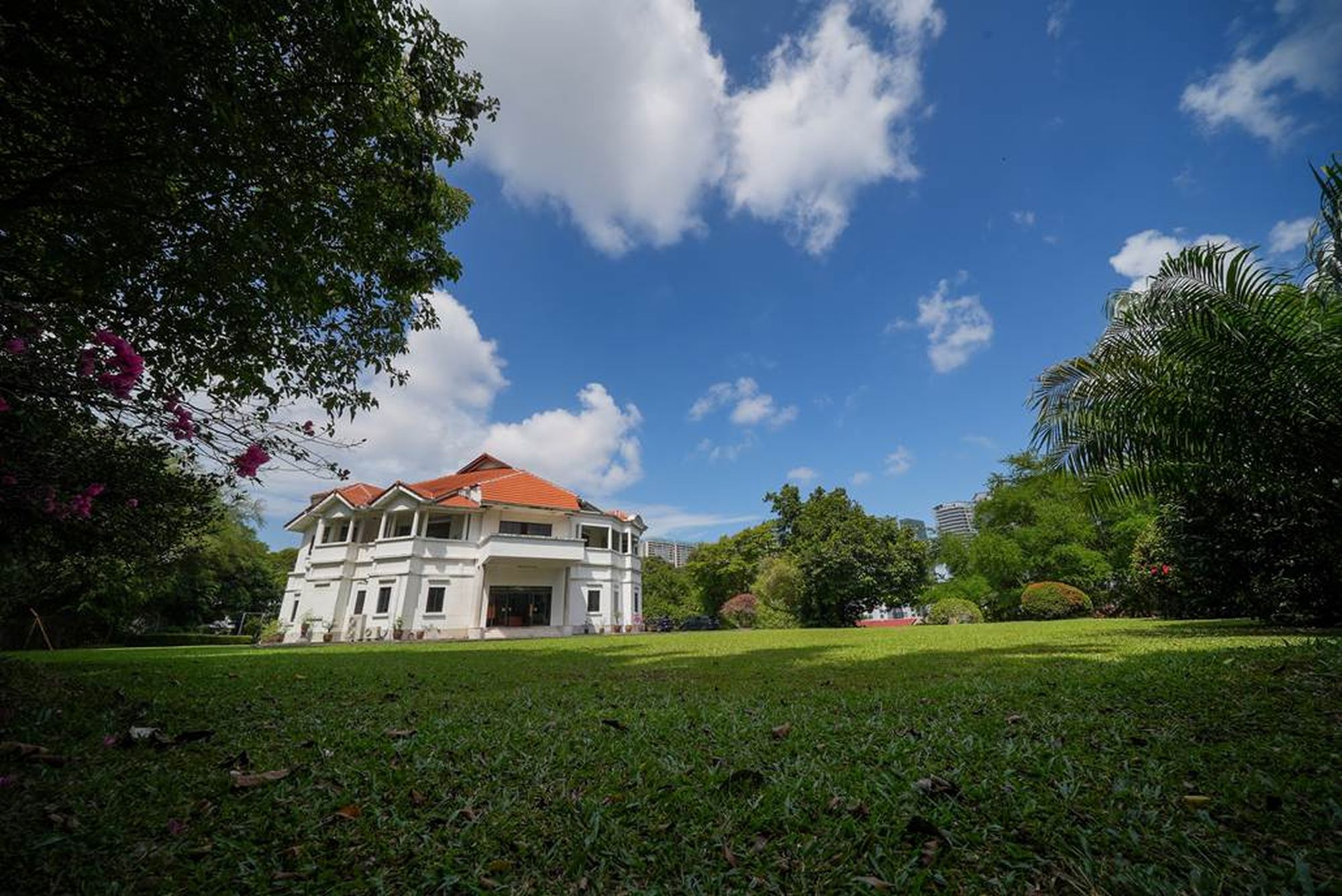

























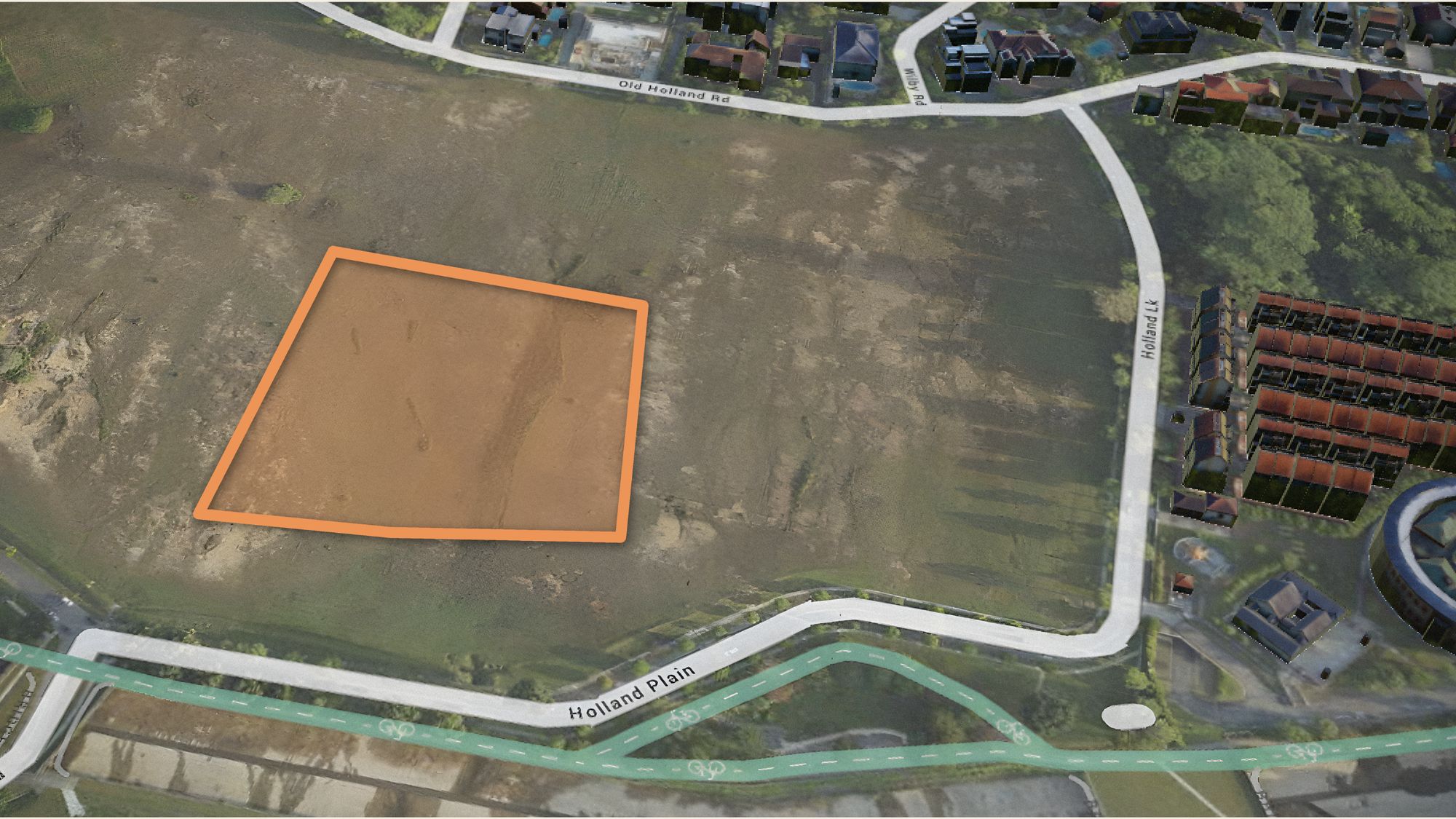








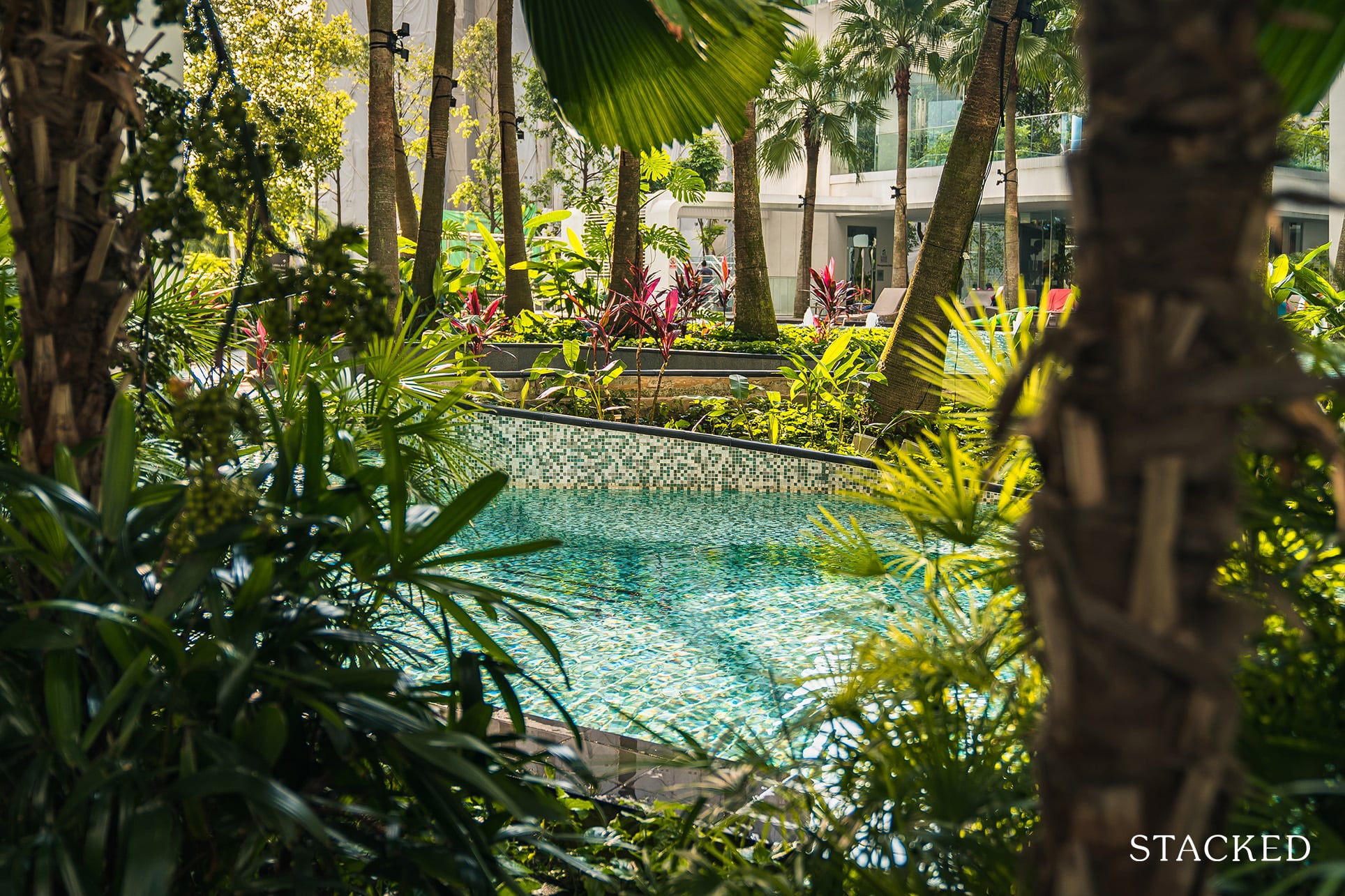
2 Comments
Hi Ryan, these are great points to note but I find that facilities are just an icing on the cake. The unit and location is more important. Many of the condos I like have very unnecessary facilities and could be crowded, but I think that really takes a backseat. Nonetheless good pointers to take note of and ask the agent when we head down for a viewing next time.